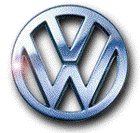In July 1958, DMG Inc., the exclusive assembler and distributor
of Volkswagens in the Philippines started delivering VW Transporters of the Kombi Type. The following months saw the arrival
of the other VW’s - the delivery vans, pick-ups and the famous Beetle made their appearance. They had 17 dealers. In
1969, they introduced the Sakbayan, considered the first Filipino car. Also introduced was the Trakbayan, a commercial vehicle.
Both used the VW Type 1 engine and most of the VW components. The sporty Toro was also introduced. It had parts used by the
Karmann Ghia.
In 1977, there are more than 47,000 VW’s in the country. Today,
a large quantity is still running. Due to the value of the Philippine Peso against the German Deutchmark in 1980, the VW vehicles
from Germany had a price disadvantage over similar Japanese cars, DMG had no other option but to cease operation.VW left the
Philippine market in March 31,1981. When the local distributor closed operations, the VW car owners relied on independent
importers for their spare parts. The Filipinos, known for their resourcefulness and ingenuity was able to maintain their VW’s
by dismantling wrecked or junked VW’s for the reusable and recyclable parts. You should see the performance and quality
of these restored and maintained cars. Soon after, a core group that shared the same VW interest started to emerge.
Volkswagen was back only in June 14, 1996 to introduce the VW Polo
Classic and the Caravelle. It was no less than the President of the Philippines, Fidel V. Ramos
who was the guest of honor at the launching ceremonies.
Here is his speech:
Welcoming Volkswagen: A Philippine Balikbayan
Statement of H.E. President Fidel V. Ramos
Launching of
Volkswagen
Models
Polo Classic and
Caravelle by Exclusive Assembler
and Distributor
Proton Pilipinas Corporation, Manila Polo Club,
Forbes Park, Makati City, Philippines
1730H, June
14, 1996
Introduction
With pride and pleasure, we welcome the re-entry
of Volkswagen into the Philippine Automotive Market. This is a significant occasion that, I am certain, will be greeted
with great joy, not only by the faithful admirers of this lovable car, but also by ordinary Filipinos
who have now been afforded a wider choice in the market.
The entry of Volkswagen has been made possible by the strategic
alliances Proton Pilipinas has forged with Proton, Volkswagen and Audi. I am delighted to learn that very soon Proton Pilipinas
will also launch its Audi product, and within a few months, the first complete ASEAN car from the Proton Pilipinas factory
in Alaminos, Pangasinan.
I commend Proton Pilipinas for taking advantage of our liberalized
trade and investment policies to make these auspicious advances. With these partnerships, they are able to share and fully
exploit their plant capacity, paving the way for sustainable growth and improved viability.
Promoting Industrialization
I also cite Proton Pilipinas for spearheading the industralization
of the north, specifically Region One. The Proton Industrial Park in Pangasinan has become a symbol of successful collaboration,
not only of business and industrial ventures on the part of two countries but of several countries. It has created new jobs,
developed industrial capabilities and expanded our modernization prospects.
The Proton Industrial Park's Multi-brand complementation is not
singly focused on cars, but extends as well to automotive components, aircraft assembly and overhaul, and completion centers.
This makes the park a new science and technology growth center.
This dynamism took place under the guidance of Mr. Peter Y.
Rodriguez, President and Chief Executive Officer of Proton Pilipinas.
A Laudable Endeavor
As we welcome Volkswagen as a major player in our car development
program (CDP) and commercial vehicle development program (CVDP), we continue to encourage others to come to the Philippines
which is now a prime location for business and industry. We share in Volkswagen's strategic vision of setting-up its Asia-Pacific
regional vehicle export assembly and component manufacturing in the Philippines. This is a laudable endeavor to which we are
happy to lend our full support.
The commitment of Proton Pilipinas and Volkswagen to this worthy
endeavor heralds increased cooperation among the Philippines, Malaysia and Germany. This project is being undertaken by a
multi-national team composed of people from ten countries, namely, Germany, the United States, Spain, South Africa, Singapore,
Malaysia, Hongkong, China, Taiwan and the Philippines.
This spirit of cooperation and teamwork, indeed, moves the Philippines
closer to economic prosperity, social equity and global competitiveness.
Thank you and Mabuhay!

